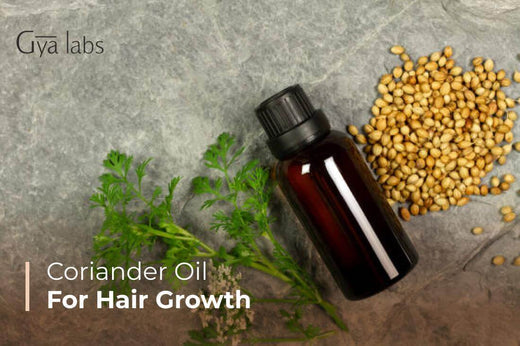Facial serums are a must-have in any effective skincare routine, offering concentrated nourishment and hydration for radiant skin. Making your own DIY face serum using sweet almond oil is not only cost-effective but also allows you to tailor the ingredients to suit your specific skin type and concerns.
The Benefits of Sweet Almond Oil
1. Rich in Nutrients
Sweet almond oil is packed with vitamins and nutrients that are beneficial for the skin, including:
- Vitamin E: A powerful antioxidant that helps to protect the skin from free radical damage.
- Vitamin A: Promotes cell turnover and regeneration, helping to maintain a youthful appearance.
- Fatty Acids: Nourish and hydrate the skin, improving its texture and softness.
- Zinc: Helps to heal acne scars and other blemishes.
2. Skin Benefits
- Sweet almond oil offers numerous benefits for the skin:
- Moisturizing: Its emollient properties help to lock in moisture, keeping the skin hydrated and soft.
- Soothing: Reduces inflammation and irritation, making it suitable for sensitive skin types.
- Anti-aging: Helps to reduce the appearance of fine lines and wrinkles.
- Non-comedogenic: Does not clog pores, making it ideal for acne-prone skin.
DIY Face Serum Recipe with Sweet Almond Oil
Ingredients
- 2 tablespoons of sweet almond oil
- 1 tablespoon of jojoba oil (acts as a carrier oil and balances sebum production)
- 10 drops of frankincense essential oil
- 5 drops of lavender essential oil
- 5 drops of rose essential oil
- 1 drop of vitamin E oil (acts as a preservative and enhances skin benefits)
Instructions
- Mix Carrier Oils: In a small glass bottle, combine the sweet almond oil and jojoba oil.
- Add Essential Oils: Add the drops of frankincense, lavender, and rose essential oils to the bottle.
- Add Vitamin E Oil: Add one drop of vitamin E oil to the mixture.
- Shake Well: Secure the lid and shake the bottle well to ensure all ingredients are thoroughly mixed.
How to Use
- Cleanse Your Face: Start with a clean face by washing your face with a gentle cleanser.
- Apply Serum: Apply a few drops of the DIY face serum to your fingertips and gently massage it into your face and neck, avoiding the eye area.
- Follow with Moisturizer: For added hydration, follow up with your favorite moisturizer.
Benefits
- Hydration: Deeply moisturizes and nourishes the skin, leaving it soft and smooth.
- Anti-aging: Reduces the appearance of fine lines, wrinkles, and age spots.
- Soothing: Calms and soothes irritated skin, reducing redness and inflammation.
- Brightening: Improves skin tone and texture, giving your complexion a healthy glow.
Why Make Your Own DIY Facial Serum?
Creating your own DIY face serum allows you to:
- Customize Ingredients: Choose the best ingredients for your skin type and concerns.
- Control Quality: Ensure that only high-quality, natural ingredients are used.
- Save Money: Homemade serums are often more affordable than store-bought alternatives.
- Avoid Harmful Chemicals: Free from synthetic fragrances, parabens, and other potentially harmful chemicals.
Essential Oils for Your DIY Facial Serum
Adding essential oils to your facial serum can enhance its benefits. Here are some popular choices:
1. Frankincense Essential Oil
Benefits: Promotes cell regeneration, reduces the appearance of scars and wrinkles, and has anti-inflammatory properties.
Suitable For: All skin types, especially mature and sensitive skin.
2. Lavender Essential Oil
Benefits: Calms and soothes irritated skin, reduces redness and inflammation, and promotes relaxation.
Suitable For: All skin types, particularly sensitive and acne-prone skin.
3. Tea Tree Essential Oil
Benefits: Has antibacterial and anti-inflammatory properties, helps to combat acne and prevent breakouts.
Suitable For: Oily and acne-prone skin.
4. Rose Essential Oil
Benefits: Hydrates and soothes dry skin, reduces redness and inflammation, and has anti-aging properties.
Suitable For: Dry and mature skin.
5. Copaiba Essential Oil
Benefits: Reduces inflammation, promotes wound healing, and has antioxidant properties.
Suitable For: All skin types, especially irritated and inflamed skin.
Additional Skincare Recipes Using Sweet Almond Oil
1. Almond and Jojoba Oil Serum for Oily Skin
Ingredients:
- 2 tablespoons of sweet almond oil
- 1 tablespoon of jojoba oil
- 5 drops of tea tree essential oil
- 5 drops of lavender essential oil
Instructions:
- Mix the sweet almond oil and jojoba oil in a glass bottle.
- Add the tea tree and lavender essential oils.
- Shake well to combine.
How to Use:
Apply a few drops to your face and neck after cleansing.
Use this serum in the evening to balance oil production and reduce acne.
Benefits:
- Balances Sebum Production: Helps to regulate oil levels in the skin.
- Anti-acne: Tea tree oil helps to prevent and treat acne breakouts.
2. Anti-aging Serum with Sweet Almond and Rose Oil
Ingredients:
- 2 tablespoons of sweet almond oil
- 1 tablespoon of grapeseed oil
- 5 drops of rose essential oil
- 5 drops of frankincense essential oil
Instructions:
- Combine the sweet almond oil and grapeseed oil in a glass bottle.
- Add the rose and frankincense essential oils.
- Shake well to mix all ingredients.
How to Use:
- Apply to your face and neck before bedtime.
- Gently massage the serum into your skin using upward strokes.
Benefits:
- Anti-aging: Reduces the appearance of fine lines and wrinkles.
- Hydrating: Deeply moisturizes and nourishes mature skin.
3. Soothing Serum for Sensitive Skin
Ingredients:
- 2 tablespoons of sweet almond oil
- 1 tablespoon of jojoba oil
- 5 drops of chamomile essential oil
- 5 drops of lavender essential oil
Instructions:
- Mix the sweet almond oil and jojoba oil in a glass bottle.
- Add the chamomile and lavender essential oils.
- Shake well to combine.
How to Use:
Apply a few drops to your face and neck after cleansing.
Use morning and night for best results.
Benefits:
- Calming: Reduces redness and soothes sensitive skin.
- Moisturizing: Provides gentle hydration without irritation.
4. Brightening Serum with Almond and Vitamin C
Ingredients:
- 2 tablespoons of sweet almond oil
- 1 tablespoon of rosehip oil
- 5 drops of lemon essential oil
- 1 teaspoon of vitamin C powder
Instructions:
- Combine the sweet almond oil and rosehip oil in a glass bottle.
- Add the lemon essential oil and vitamin C powder.
- Shake well to mix all ingredients.
How to Use:
Apply to your face and neck in the morning before sunscreen.
Gently massage the serum into your skin.
Benefits:
- Brightening: Vitamin C helps to even out skin tone and reduce dark spots.
- Anti-aging: Protects the skin from free radical damage.
5. Nourishing Night Serum with Sweet Almond and Lavender
Ingredients:
- 2 tablespoons of sweet almond oil
- 1 tablespoon of argan oil
- 5 drops of lavender essential oil
- 5 drops of copaiba essential oil
Instructions:
- Mix the sweet almond oil and argan oil in a glass bottle.
- Add the lavender and copaiba essential oils.
- Shake well to combine.
How to Use:
Apply to your face and neck before bedtime.
Gently massage the serum into your skin using circular motions.
Benefits:
- Nourishing: Provides deep hydration and nourishment overnight.
- Calming: Helps to relax the skin and reduce inflammation.
Tips for Using DIY Face Serums
- Patch Test: Always perform a patch test before using a new serum to ensure you do not have an allergic reaction.
- Consistency: Use the serum consistently for best results. Apply it daily as part of your skincare routine.
- Storage: Store your DIY face serum in a cool, dark place to preserve the potency of the essential oils.
- Hygiene: Use clean hands or a dropper to apply the serum to avoid contamination.
Risks and Precautions of Using Almond Oil on the Face
While almond oil is generally considered safe for most skin types and offers numerous benefits, it's essential to be aware of potential risks and take precautions to avoid adverse reactions. Here are some key considerations:
Allergic Reactions
Risk: Almond oil is derived from nuts, and individuals with nut allergies may experience an allergic reaction when applying almond oil to their skin. Symptoms of an allergic reaction may include redness, itching, swelling, or hives.
Precaution: If you have a known nut allergy, it's best to avoid using almond oil on your face. If you're unsure whether you're allergic, perform a patch test before applying the oil to your entire face. Apply a small amount of almond oil to a discreet area of skin, such as the inside of your elbow, and wait 24 hours to check for any adverse reactions.
Clogged Pores
Risk: Although sweet almond oil is non-comedogenic, meaning it’s unlikely to clog pores, it can still cause issues for individuals with very oily or acne-prone skin. Applying too much oil can lead to clogged pores, which may result in breakouts or blackheads.
Precaution: Use almond oil sparingly, especially if you have oily or acne-prone skin. Start by applying a small amount and observe how your skin responds. If you notice any increase in breakouts or blackheads, it may be best to discontinue use or limit application to drier areas of your face.
Skin Irritation
Risk: Some individuals with sensitive skin may experience irritation when using almond oil, particularly if it's combined with other active ingredients in skincare products.
Precaution: If you have sensitive skin, consider diluting almond oil with a carrier oil like jojoba oil to reduce the risk of irritation. Additionally, avoid using almond oil in combination with other potent skincare ingredients, such as retinoids or exfoliating acids, which could increase the likelihood of irritation.
Sun Sensitivity
Risk: Almond oil does not contain sun protection and can make your skin more sensitive to sunlight, especially if used in combination with certain essential oils like citrus oils.
Precaution: When using almond oil during the day, always follow up with a broad-spectrum sunscreen to protect your skin from UV damage. Alternatively, you can use almond oil as part of your nighttime skincare routine to avoid potential sun sensitivity.
Product Quality
Risk: Not all almond oils are created equal. Some products may contain additives, preservatives, or fragrances that could irritate the skin or reduce the oil’s effectiveness.
Precaution: Choose high-quality, cold-pressed, and organic sweet almond oil to ensure you're using a pure product. Always check the ingredient list to confirm that the oil does not contain any unwanted additives.
Interaction with Other Skincare Products
Risk: When layering skincare products, almond oil may not be compatible with certain ingredients, potentially leading to reduced effectiveness or increased risk of irritation.
Precaution: Be mindful of the order in which you apply your skincare products. Almond oil is an emollient and should generally be applied after lighter, water-based products like serums and before heavier creams. Avoid using almond oil with products that contain strong acids or retinoids without consulting a dermatologist.
General Tips for Safe Use
- Start Slowly: If you’re new to using almond oil on your face, introduce it gradually into your routine to monitor how your skin reacts.
- Avoid the Eye Area: Be cautious when applying almond oil near the eyes, as it can cause irritation if it gets into the eyes.
- Store Properly: Store almond oil in a cool, dark place to prevent it from going rancid, which can reduce its effectiveness and potentially irritate the skin.
Conclusion
Creating your own DIY face serum with sweet almond oil is a fantastic way to customize your skincare routine using natural ingredients. Sweet almond oil is rich in vitamins and fatty acids that nourish and hydrate the skin, while essential oils like frankincense, lavender, and tea tree add additional benefits tailored to your skin type and concerns. Whether you have dry, sensitive, oily, or mature skin, there’s a DIY facial serum recipe that can help you achieve a healthier, more radiant complexion. Enjoy the process of making homemade skincare products and experience the wellness benefits they bring to your skin and overall self-care routine.















